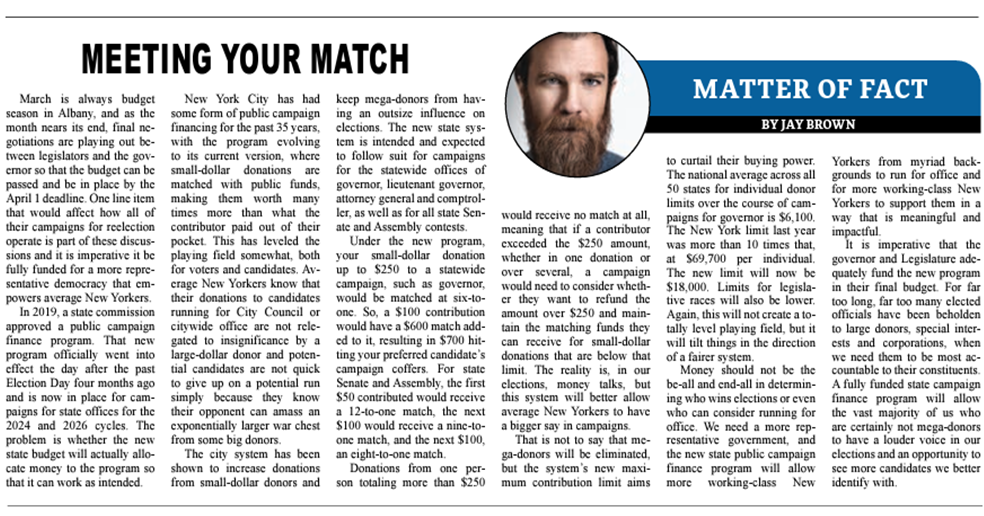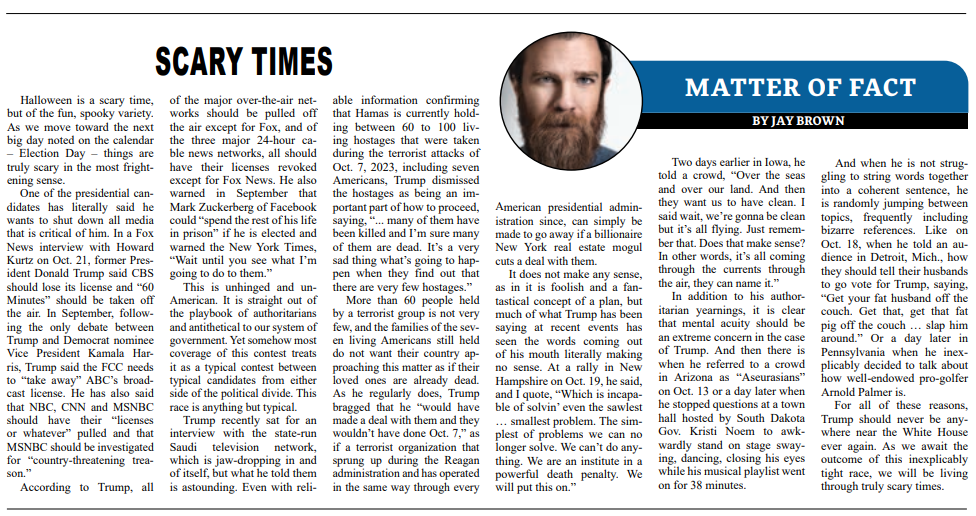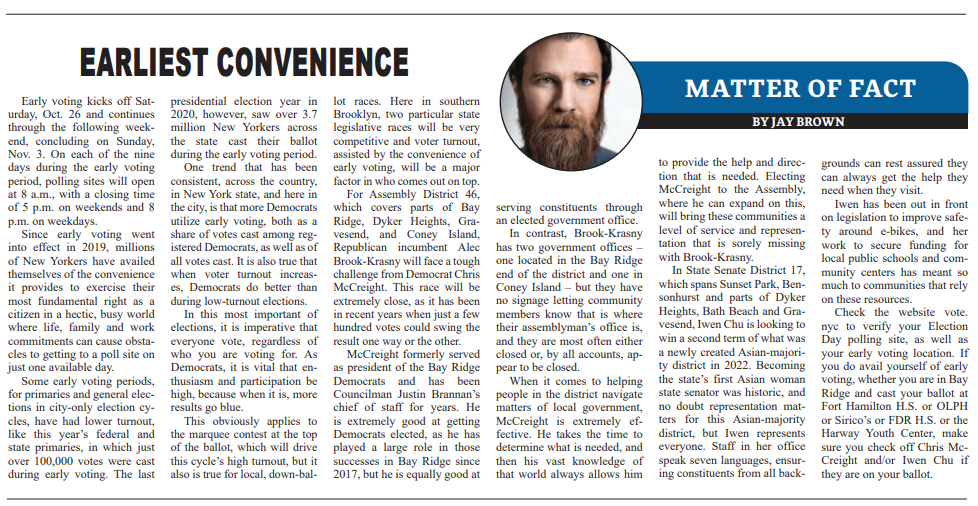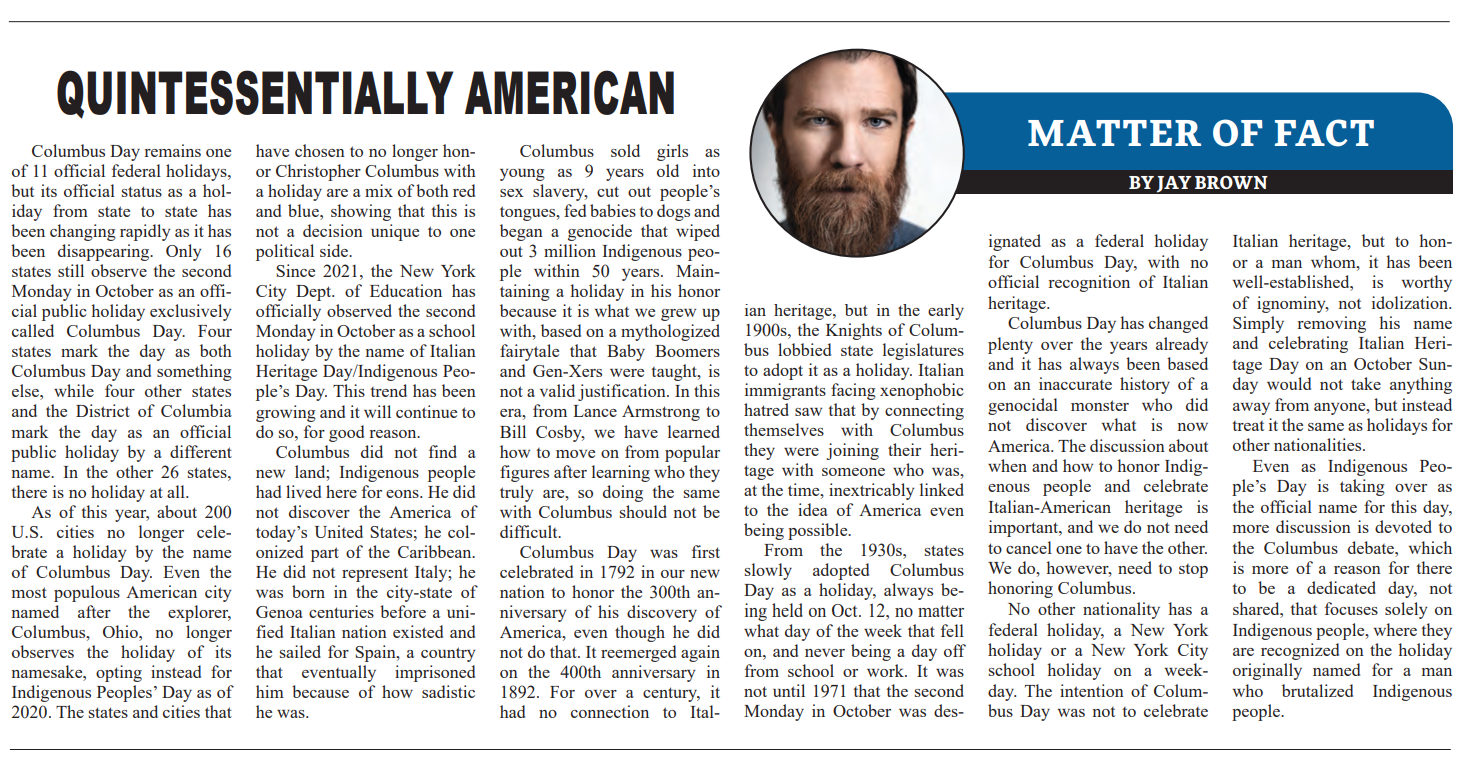This column, from the weekly opinion piece MATTER OF FACT, first appeared on BrooklynReporter.com, the Home Reporter and Spectator dated March 24, 2023
March is always budget season in Albany and has the month nears its end, final negotiations are playing out between legislators and the governor so that the budget can be passed and in in place by the April 1 deadline. One line item that would affect how all of their campaigns for reelection operate is part of these discussions and it is imperative it be fully funded for a more representative democracy that empowers average New Yorkers.
In 2019, a state commission approved a public campaign finance program. That new program officially went into effect the day after the past Election Day four months ago and is now in place for campaigns for state offices for the 2024 and 2026 cycles. The problem is whether the new state budget will actually allocate money to the program so that it can work as intended.
New York City has had some form of public campaign financing for the past 35 years, with the program evolving to its current version, where a small-dollar donations are matched with public funds, making them worth many times more than what the contributor paid out of their pocket. This has leveled the playing field somewhat, both for voters and candidates. Average New Yorkers know that their donations to candidates running for City Council or citywide office are not relegated to insignificance by a large-dollar donor and potential candidates are not quick to give up on a potential run simply because they know their opponent can amass an exponentially larger war chest from some big donors.
The city system has been shown to increase donations from small-dollar donors and keep mega-donors from having an outsize influence on elections. The new state system is intended and expected to follow suit for campaigns for the statewide offices of governor, lieutenant governor, attorney general, and comptroller, as well as for all state senate and assembly contests.
Under the new program, your small-dollar donation up to $250 to a statewide campaign, such as governor, would be matched at six-to-one. So, $100 contribution would have a $600 match added to it, resulting in $700 hitting your preferred candidate’s campaign coffers. For state senate and assembly, the first $50 contributed would receive a twelve-to-one match, the next $100 would receive a nine-to-one match, and the next $100, an eight-to-one match.
Donations from one person totaling more than $250 would receive no match at all, meaning that if a contributor exceeded the $250 amount, whether in one donation or over several, a campaign would need to consider whether they want to refund the amount over $250 and maintain the matching funds they can receive for small-dollar donations that are below that limit. The reality is, in our elections, money talks, but this system will better allow average New Yorkers to have a bigger say in campaigns.
That is not to say that mega-donors will be eliminated, but the system’s new maximum contribution limits aims to curtail their buying power. The national average across all 50 states for individual donor limits over the course of campaigns for governor is $6,100. The New York limit last year was more than ten times that, at $69,700 per individual. The new limit will now be $18,000. Limits for legislative races will also be lower. Again, this will not create a totally level playing field, but it will tilt things in the direction of a fairer system.
Money should not be the be-all and end-all in determining who wins elections or even who can consider running for office. We need a more representative government, and the new state public campaign finance program will allow more working-class New Yorkers from myriad backgrounds to run for office and for more working-class New Yorkers to support them in a way that is meaningful and impactful.
It is imperative that the governor and legislature adequately fund the new program in their final budget. For far too long, far too many elected officials have been beholden to large donors, special interests, and corporations, when we need them to be most accountable to their constituents. A fully funded state campaign finance program will allow the vast majority of us who are certainly not mega-donors to have a louder voice in our elections and an opportunity to see more candidates we better identify with.




